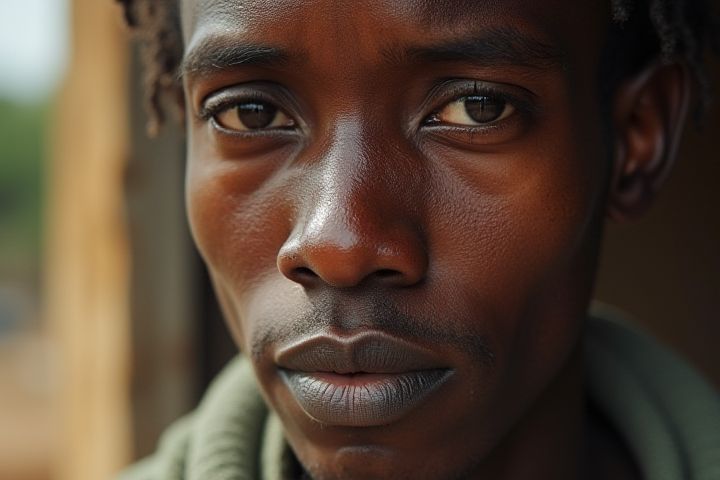
Nigerian social issues encompass a range of challenges, including poverty, corruption, and ethnic tensions. The nation struggles with a significant portion of its population living below the poverty line, which exacerbates inequality and creates social unrest. Corruption at various levels of government undermines public trust and hampers economic development, making it difficult for citizens to access essential services such as healthcare and education. Additionally, ethnic and religious disparities often lead to conflicts, heightening the need for effective dialogue and reconciliation efforts. You can engage with these issues by supporting local initiatives aimed at social justice and community development.
Economic inequality
Economic inequality in Nigeria is characterized by a substantial wealth gap, where a small percentage of the population controls most of the resources while many live in poverty. The disparity is exacerbated by factors such as inadequate access to education, limited job opportunities, and corruption, which hinder social mobility. Urban areas often showcase stark differences in living standards, with affluent neighborhoods coexisting alongside slums. Addressing these inequalities is crucial for fostering social cohesion and promoting sustainable economic development in the country.
Corruption
Corruption in Nigeria significantly hampers economic development and social progress, manifesting in various sectors, including governance, education, and healthcare. Bribery and embezzlement, pervasive in political spheres, undermine public trust and lead to a misallocation of resources essential for national growth. Your awareness of these issues can foster a greater understanding of the challenges facing Nigeria, where citizens often struggle against inadequate infrastructure and limited access to basic services due to corrupt practices. Efforts to combat corruption, such as strengthening legal frameworks and promoting transparency, are crucial for ensuring accountability and fostering a healthier society.
Ethnic tensions
Nigeria's ethnic tensions stem from its diverse population, which includes over 250 distinct ethnic groups such as the Hausa, Yoruba, and Igbo. These tensions often manifest in conflicts over resources, political power, and cultural recognition, exacerbated by historical grievances and socio-economic disparities. Additionally, inter-communal violence can be linked to competition for land and wealth, particularly in regions like the Niger Delta and the Middle Belt. Understanding Nigeria's ethnic dynamics is crucial for addressing these ongoing conflicts and fostering national unity.
Youth unemployment
Youth unemployment in Nigeria has become a critical social issue, with over 40% of the nation's young population struggling to find jobs. This high unemployment rate exacerbates poverty levels, stifles economic growth, and contributes to social unrest. Contributing factors include a lack of vocational training, inadequate access to quality education, and limited job opportunities in key sectors such as technology and agriculture. Addressing these challenges is vital for empowering the youth and fostering sustainable development across the country.
Insecurity
Insecurity remains a pressing social issue in Nigeria, characterized by widespread violence from militant groups, kidnappings, and intercommunal clashes. The rise of Boko Haram in the northeast has profoundly impacted local communities, leading to displacement and loss of lives. Your safety may be compromised by banditry in the northwest and militancy in the Niger Delta, where resource conflicts intensify. Addressing these challenges requires comprehensive strategies involving community engagement, government intervention, and international collaboration to foster stability and peace.
Education challenges
Education in Nigeria faces significant challenges, including inadequate infrastructure, high dropout rates, and limited access to quality learning resources. Many rural areas lack basic educational facilities, resulting in children walking long distances to attend school. The rise in insecurity has further exacerbated these issues, leading to school closures and increased vulnerability of students. Addressing these barriers is crucial for fostering a skilled workforce and promoting national development in Nigeria.
Healthcare access
Healthcare access in Nigeria is a critical social issue impacting millions of citizens. Many rural areas lack essential medical facilities, leading to disparities in health outcomes compared to urban regions. Insufficient funding and inadequate infrastructure exacerbate the challenges, resulting in high maternal and infant mortality rates. Your awareness and understanding of these challenges can help advocate for improved healthcare policies and support initiatives aimed at enhancing access to quality medical services across the nation.
Gender inequality
Gender inequality in Nigeria remains a critical social issue, manifesting in various forms such as educational disparities, employment opportunities, and access to healthcare. Women often face barriers that prevent them from achieving their full potential, including cultural norms that prioritize male dominance and restrict female participation in decision-making processes. The impact of this inequality is evident in underrepresentation in political offices and a significant wage gap across sectors. Addressing these challenges through policy reforms and grassroots initiatives is essential for fostering an equitable society where everyone can thrive.
Poverty
Poverty in Nigeria remains a pressing social issue, affecting millions and manifesting in inadequate access to basic needs such as food, healthcare, and education. The high unemployment rate exacerbates the situation, leading to a significant portion of the population living below the poverty line. Rural communities experience the most severe impacts, where limited infrastructure and resources hinder economic opportunities. Addressing poverty involves not only governmental initiatives but also community-driven programs that empower individuals and promote sustainable development.
Displacement and migration
Nigerian social issues significantly encompass displacement and migration, driven by various factors such as conflict, poverty, and environmental degradation. This phenomenon has led to an increasing number of internally displaced persons (IDPs), particularly in regions affected by insurgency and violence, notably in the northeastern states. Migration, both voluntary and forced, often creates a ripple effect impacting urban areas, where migrants seek better opportunities but face challenges such as overcrowding and limited resources. Understanding these dynamics is crucial for addressing the humanitarian needs and developing policies to support vulnerable populations within Nigeria.
